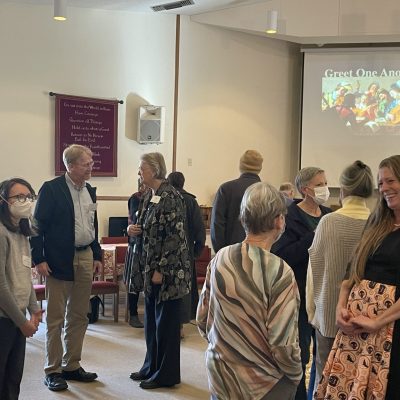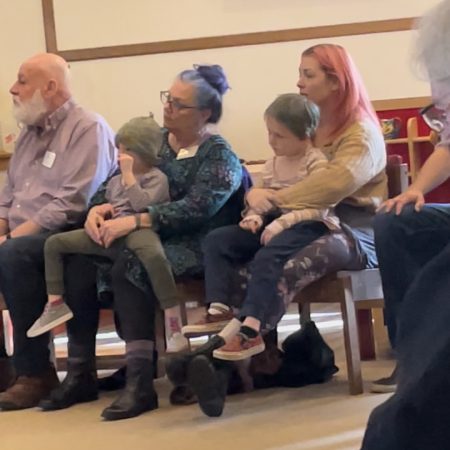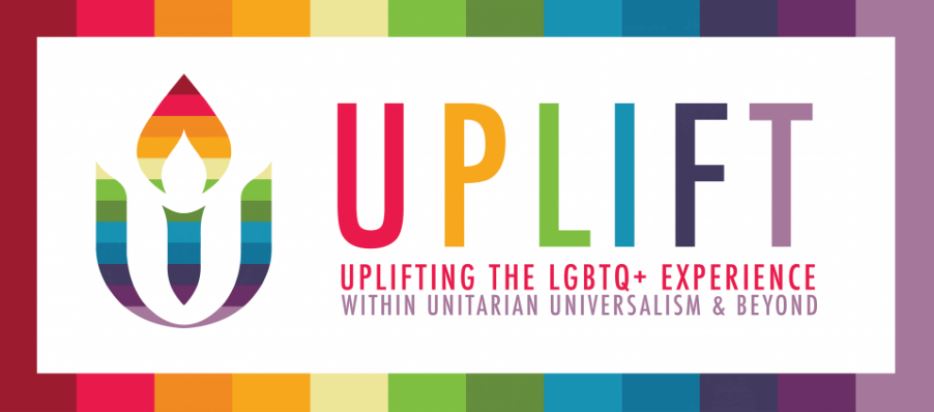Unitarian Universalist Society of River Falls (UUSRF) is growing from its beginnings in 1989 when a group of neighbors saw a need for a meeting place of like-minded people, a caring, open, inclusive congregation where many traditions can be honored with reason, compassion, justice, and a free and responsible search for truth and meaning guiding the way.

Each Sunday morning service is different – we may have a poet, scientist, historian, or music Sunday. You can hear readings from many sources and traditions, songs, hymns, and meditations – and sometimes sit in silent contemplation.
Our UU services tend to use gender-inclusive language, as well as language and concepts from a wide range of religious and philosophical traditions. Check out the archive of videos to see the range of diverse experiences at UUSRF.

UUSRF is Part of the Global Unitarian Universalist Association
The Unitarian Universalist Society of River Falls is a member of the greater global Unitarian Universalist Association (UUA).
To find out more about Unitarian Universalism, our beliefs, activism, ministry, worship, religious education, social justice, and history, visit the UUA website by Clicking Here.

We are here to support each other on life’s journey.
Seven Guiding Principles of UU…
We, the member congregations of the Unitarian Universalist Association, covenant to affirm and promote:
- The inherent worth and dignity of every person;
- Justice, equity, and compassion in human relations;
- Acceptance of one another and encouragement to spiritual growth in our congregations;
- A free and responsible search for truth and meaning;
- The right of conscience and the use of the democratic process within our congregations and in society at large;
- The goal of world community with peace, liberty, and justice for all;
- Respect for the interdependent web of all existence of which we are a part.

Overview of Unitarian Universalism Background
Unitarian Universalism was formed from the consolidation in 1961 of two historically separate Christian denominations – the Universalist Church of America and the American Unitarian Association – both based in the United States; the new organization formed in this merger was the Unitarian Universalist Association. Unitarianism, as an organized church, has roots tracing back to the 1560s; yes, you read that right…the 1560s.
Welcoming Community
Being welcoming means a community built on inclusiveness and creating spaces honoring every part of our identities, backgrounds, and experiences. UUSRF strives to change that, as we focus on inclusion.
We know that religious spaces haven’t always been welcoming places for all people, especially when it comes to gender and sexuality. For years, UUs have worked hard to make sure lesbian, gay, bisexual, transgender, and queer people are full members of our faith communities. Find out more: Click Here.
UPLIFT is a platform for the UUA to highlight LGBTQ+ issues and concerns by featuring related programming, reflections, and content circulated in UUA’s quarterly email newsletter: Click Here.
“Unitarian Universalists are neither a chosen people nor a people whose choices are made for them by theological authorities – ancient or otherwise. We are a people who choose.“
― Forrest Church, A Chosen Faith: An Introduction to Unitarian Universalist

